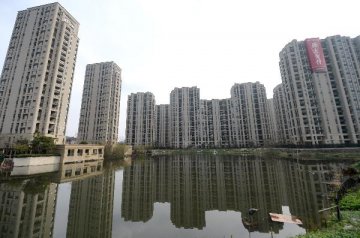
Wang Xin was close to buying an apartment in downtown Beijing for 3.3 million yuan (500,000 U.S. dollars), but the home owner raised the price by 20,000 yuan at the last minute.Wang agreed to pay the extra money, but the deal fell through anyway. The home owner went with an estate agent, who promised to sell the apartment for 470,000 yuan more. Wang tried to persuade the owner to honor the deal, but was locked out of the realtor's office. This dramatic turn of events all happened in less than half an hour. Similar episodes have taken place over the past month in China's big cities, most in the east, where home buyers wait outside developers' sales offices overnight to snap up new homes and home owners call prospective buyers and sales agents to raise the price by the week, days, or even hours.
The sudden buying frenzy came amid a spate of property easing measures and easy credit as authorities seek to provide an environment that will reduce housing inventories, which has dragged China's property market into a sustained correction. Home prices jumped 52.7 percent in January from a year ago in the southern boomtown of Shenzhen, which has led the price increase of major cities last year. This was followed by a 21.4 percent rise in Shanghai, 11.3 percent in Beijing and 10 percent in Guangzhou, data from the National Bureau of Statistics shows.
"I'm so glad I bought the apartment early. The prices have risen so fast since then," said one home owner in Shenzhen. Her apartment, bought in July last year, has doubled in value.
Increased transaction volume further reduced inventories in top tier cities. Data compiled by real estate service firm E-House shows that as of February, property inventories in China's top four cities (Beijing, Shanghai, Guangzhou and Shenzhen) can be sold in less than ten months. Shanghai's inventories have dipped to 7 months, down 22 percent from a year ago. This will only increase the property market gap between top and lower tier cities. The latter are in a more urgent need of inventory slash. In January, inventory levels in third tier cities stood at 19.4 months, E-House data shows. A reading over 15 months underscores the need to clear inventories. Some of the worst performing property markets are saddled with inventories that can last more than two years.
Authorities have cut interest rates, reduced downpayments for mortgages and removed existing home restrictions in nearly all but top tier cities in the hope of boosting sales. Unsold homes in many lower tier cities have subdued developers investment in new property development, which has weighed on industrial production, fixed asset investment and headline growth. Increased home transactions have been backed by eased access to credit.
Data from the central bank show that new yuan-denominated loans rose to a record high of 2.51 trillion yuan in January. Analysts say that the surge could have been fueled by increased mortgages, which surged 23 percent in the fourth quarter last year. A recent research note by Gavekal Dragonomics said that mortgages will only increase in the future as housing demands shift from middle class urbanites to lower-income rural migrants.
Though there is a limit on mortgage amounts, some real estate agencies have been providing additional leverage for people who can not find deposits One agency provides credit up to 20 percent of their deposit without any collateral. The money was raised through peer-to-peer lending investments that promise 8 to 12 percent annualized return. This has enabled many to purchase homes that they otherwise could not afford. The results, many in the industry say, would be the return of more speculative demand, pushing home prices to frothier levels.
"There are signs that speculative demands are back again, pushing up home prices with easy credit," said Wang Feng, a real estate analyst based in Shenzhen. "While authorities need to provide ample credit for real mortgage demand, they should be aware of any attempts to seek leverage to speculate in the property market."






















Latest comments